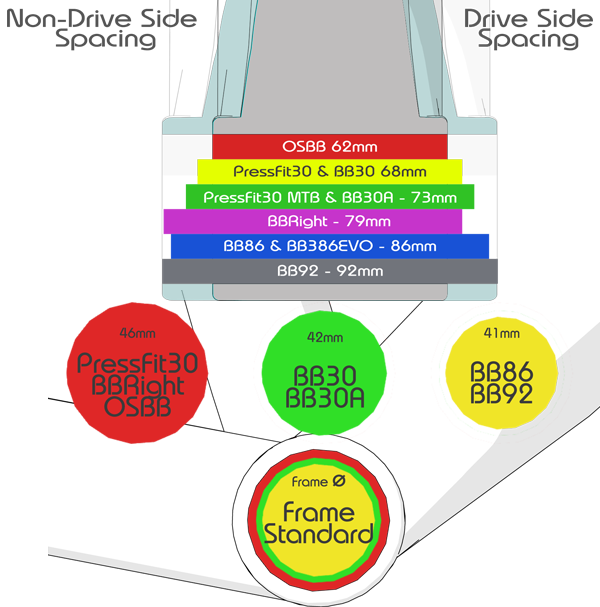Bottom Bracket Selection Guide


Disc brakes squeaking, eh? Join the club. In this blog we will show you how to stop bicycle brakes from squeaking. With the sudden proliferation of disc brake road bikes out there, mechanics are having to find ways to cure the squeaks. Sure, mountain bikes can get squeaky too, and this process will work for them as well, but it’s the road bikes that seem to suffer the worst disc brake squeal. What causes disc brake squeaking in the first place and how can you fix squeaky brakes on a bike? We’ve got the answers, and the fix, but first you’ll need to remove the pads from the calipers and the rotors from the wheels. You’ll also need some supplies to fix the disc brake squeal. Check out Figure 1.

How the brakes are used is a huge factor in squeaky bike brakes. Road bikes rarely see the hard on-and-off braking and higher temps of your typical mountain bike ride. All that brake feathering roadies do glazes the pads and rotors to a squeaky smooth---or should I say screechy-smooth---surface. The fix for your squeaky mountain bike disc brakes is to break that glaze off all contact surfaces. You can use sand paper for this, 150 grit will do, or you can opt for something that requires less elbow grease. An angled die grinder with a 3M Roloc arbor and a 180 grit sanding disk get it done in a hurry. In Figure 2 you can see a glazed rotor at LEFT compared to the same rotor after it’s been non-directionally sanded at RIGHT. The non-directional "pattern" ensures proper bed-in and the uneven surface etching prevents the pads from the “tracking” that gets the glazing going in the first place. Check the thickness specs for the make and model rotors you have. If they're close to the low spec, get new ones.

After you’ve done both sides of both rotors, clean them with an automotive-type brake cleaner or White Lightning Clean Streak, or my favorite cleaner for this, Motorex Power Brake Clean. Always take care with chemicals around your paint job.
Now we need to do the same treatment to the squeaky bike pads if they’re not goners. Once again, it’s the disc road bikes that suffer the worst pad contamination and cause disc brake squeal. Whenever you ride in the rain the oily grime from the road surface gets suspended in the water that is then splashed up onto rotors, coating them with oily residue. From then on this oily mess is transferred to the surface of the pad material. This contaminated surface must be removed if the pad can be salvaged. If any of the following applies to your pads, don’t bother with this and just replace them, and these pad killers are: 1) Uneven wear 2) Brake fluid contamination 3) Pads worn below 1.5mm thickness, and this is the friction material, not the backing plate. If your pads pass muster and just have glazing, proceed.
You just need to take off a tenth or so from the surface, which won’t be hard. Wear gloves and a particle mask and do this outside, please. Do not breathe the powder coming off because it might contain asbestos. Probably not, but don’t risk it.
Grip the pad backing plate and, using a flat machinists file or a sheet of sand paper on a flat surface, move the pad back and forth with even pressure, taking great care not to grind the pad into an uneven condition. Check the pad frequently and continue until the very top layer has been removed. Check out Figure 3:I just did half so you can see the difference. Once the pad looks good, stop and clean them with the same stuff you cleaned the rotors with.

Now comes the time to put everything back together. Don’t forget to properly torque the rotor fasteners or lock ring. I would true the rotors at this time using a proper fixture such as the Park Tools set up in Figure 4.
Don’t skimp on the rotor truing. When the rotors are true you can set the air gaps between the pad and rotor properly and easily. If you leave it wonky you’ll be chasing your tail for an hour to do a five minute job. Keep your work clean. Contamination is the enemy.
I never thought you’d ask. I have a video for that right here:
If you have any questions please add to the conversation. This brake squeal fix and other similar techniques are evolving rapidly.
Comments will be approved before showing up.
